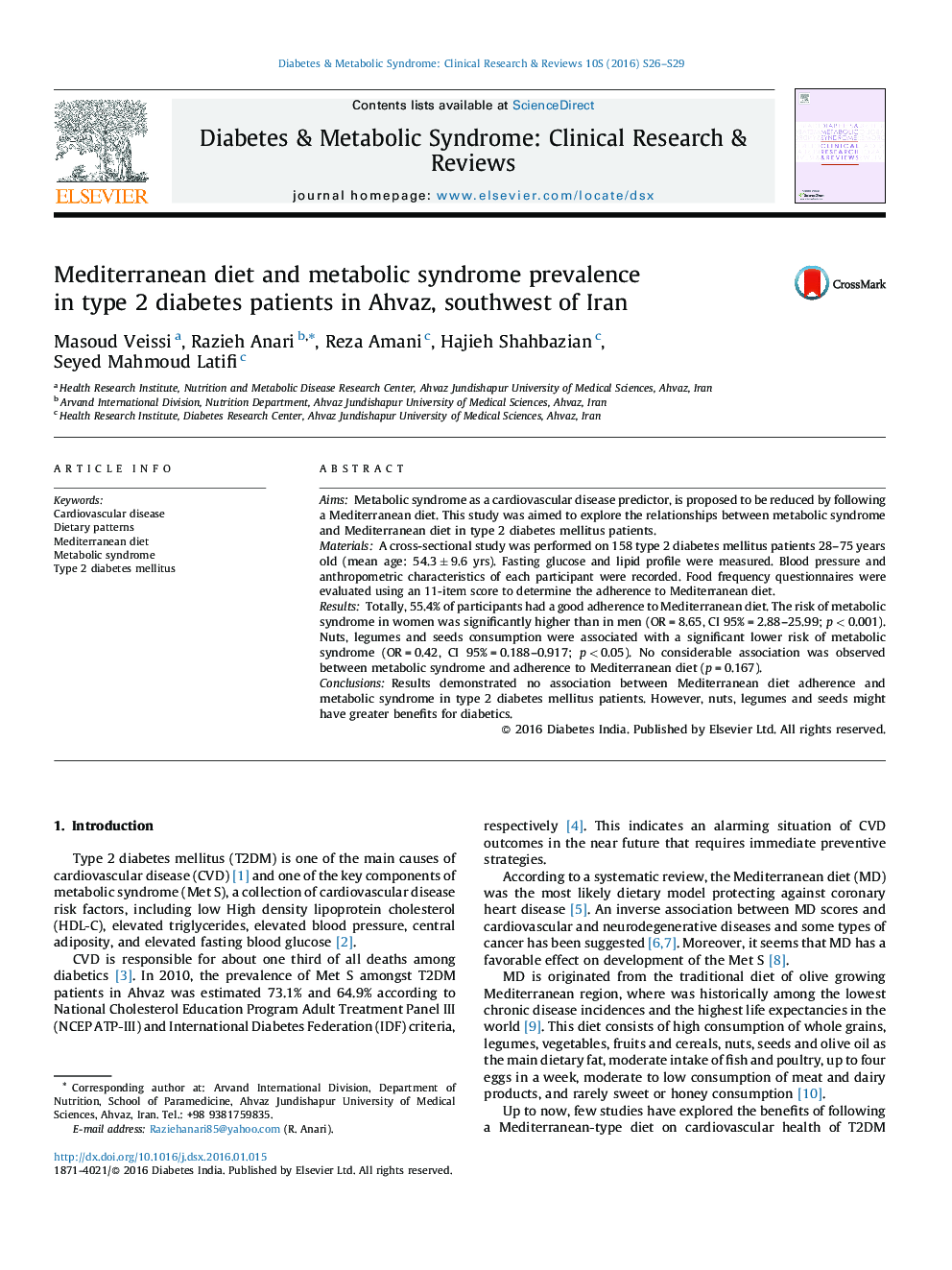| Article ID | Journal | Published Year | Pages | File Type |
|---|---|---|---|---|
| 2909793 | Diabetes & Metabolic Syndrome: Clinical Research & Reviews | 2016 | 4 Pages |
•This was a cross-sectional study in T2DM patients.•No significant association was found between Met S and adherence to MD.•Women had the higher risk for metabolic syndrome.•Nuts, legumes and seeds have cardiovascular benefits for diabetics.
AimsMetabolic syndrome as a cardiovascular disease predictor, is proposed to be reduced by following a Mediterranean diet. This study was aimed to explore the relationships between metabolic syndrome and Mediterranean diet in type 2 diabetes mellitus patients.MaterialsA cross-sectional study was performed on 158 type 2 diabetes mellitus patients 28–75 years old (mean age: 54.3 ± 9.6 yrs). Fasting glucose and lipid profile were measured. Blood pressure and anthropometric characteristics of each participant were recorded. Food frequency questionnaires were evaluated using an 11-item score to determine the adherence to Mediterranean diet.ResultsTotally, 55.4% of participants had a good adherence to Mediterranean diet. The risk of metabolic syndrome in women was significantly higher than in men (OR = 8.65, CI 95% = 2.88–25.99; p < 0.001). Nuts, legumes and seeds consumption were associated with a significant lower risk of metabolic syndrome (OR = 0.42, CI 95% = 0.188–0.917; p < 0.05). No considerable association was observed between metabolic syndrome and adherence to Mediterranean diet (p = 0.167).ConclusionsResults demonstrated no association between Mediterranean diet adherence and metabolic syndrome in type 2 diabetes mellitus patients. However, nuts, legumes and seeds might have greater benefits for diabetics.
